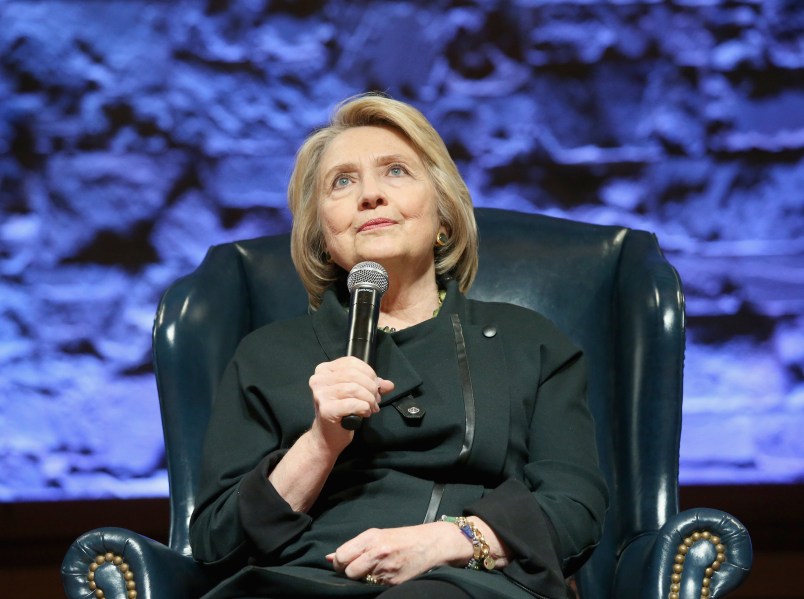A politically-driven DOJ “review” of the Clinton Foundation and other warmed-over Clinton-related stories, which President Donald Trump demanded in 2017 as the Mueller probe heated up, has essentially concluded with nothing to show for its work.
The U.S. Attorney for the District of Utah, John Huber, has finished the probe and found no criminal conduct to pursue, The Washington Post reported Thursday, citing unnamed current and former law enforcement officials.
The review followed an intense public push in 2017 by Trump and his allies in Congress to appoint a second special counsel — counter-programming for special counsel Robert Mueller.
Everybody is asking why the Justice Department (and FBI) isn't looking into all of the dishonesty going on with Crooked Hillary & the Dems..
— Donald J. Trump (@realDonaldTrump) November 3, 2017
The same month that Trump tweeted a push for a probe of Clinton, November 2017, Attorney General Jeff Sessions wrote to Huber, telling him to review existing evidence.
“Your recommendations should include whether any matters not currently under investigation warrants the opening of an investigation, whether any matters currently under investigation require further resources or further investigation, and whether any matters would merit the appointment of a Special Counsel,” Sessions said.
The Justice Department claimed no such written directive to Huber existed; it was ultimately surfaced through a public records lawsuit by the watchdog group American Oversight.
In addition to other seemingly never-ending probes, like one into Clinton’s use of a private email server as secretary of state, Huber pursued the non-scandal surrounding the Canadian mining company called Uranium One.
Uranium One’s chairman had donated to the Clinton Foundation, which fueled conservative conspiracy theories that Clinton had meddled in the approval process for the company’s acquisition by Russia’s nuclear energy agency Rosatom during her time as secretary of state.
Clinton didn’t meddle in the deal — an independent board consisting of the the State Department and eight other federal agencies approved it — but it was a useful attack line for Republicans in 2016 and beyond.
Like many anti-Clinton attacks, the Uranium One story began with Peter Schweizer, the Breitbart contributor whose group, Government Accountability Institute, was founded by Steve Bannon, funded by the pro-Trump mega-donor Robert Mercer and chaired by Mercer’s daughter Rebekah.
The New York Times was heavily criticized for a 2015 article on Uranium One and the Clinton Foundation that independently built on Schweizer’s findings in his then-forthcoming book Clinton Cash, which, similarly was a wellspring of Clinton attacks.
The story spent years in conservative opposition research circles after that, from the then-Hill contributor John Solomon to a U.S.-based uranium company who cited Uranium One to appeal to the Trump administration for limits on foreign uranium imports.
“We didn’t expect much of it, and neither did he,” one unnamed person familiar with the matter told the Washington Post Thursday, referring to Huber’s review.
“And as time went on, a lot of people just forgot about it.”



